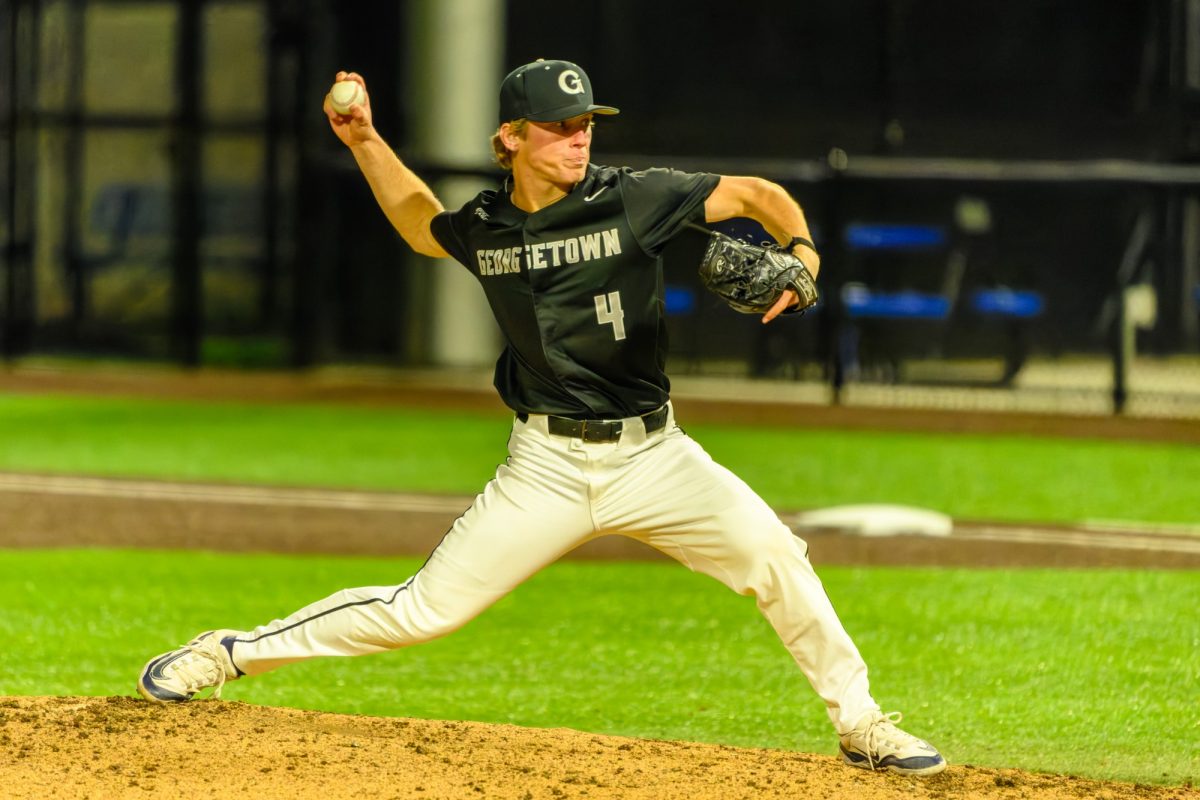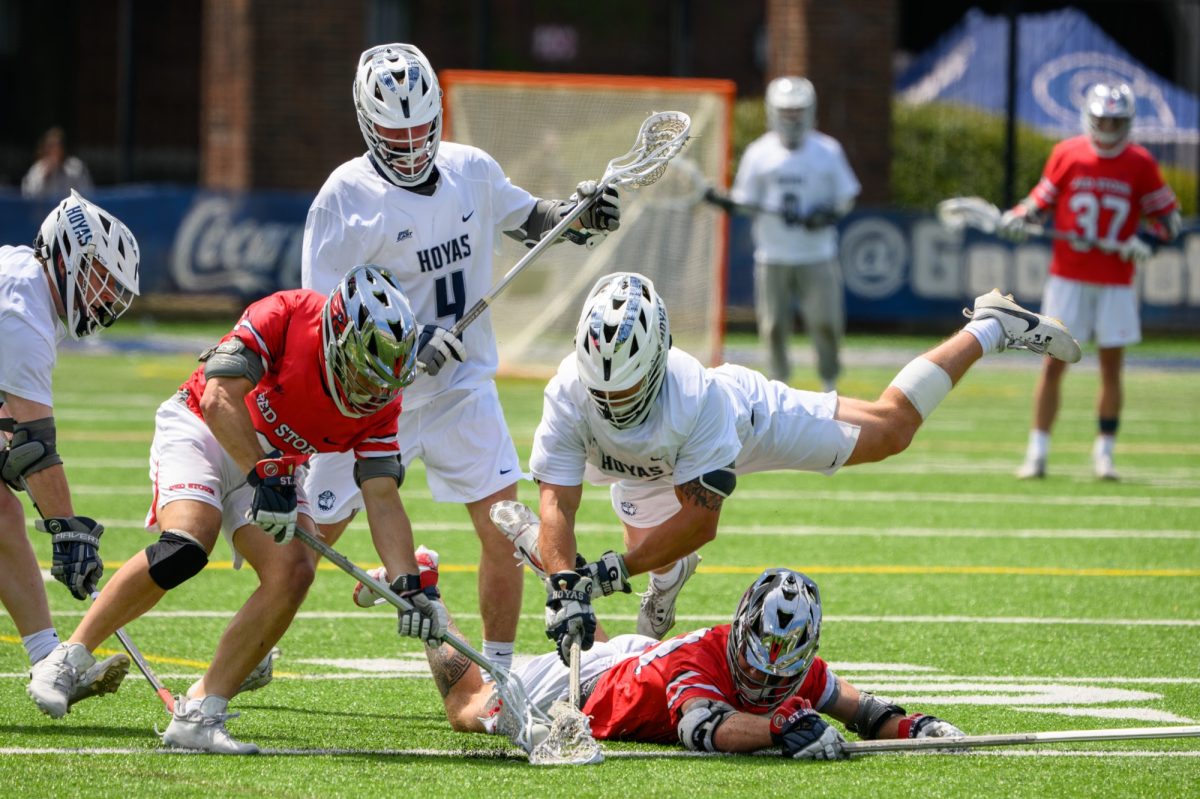I have walked along the red brick path that connects Red Square to Georgetown’s front gates thousands of times. Sometimes I walk through quickly, caught up in my daily cares, trying to get to my next class or heading to a friend’s place on Magis Row.
Other times, when I am more truly myself, I stroll slowly and take in the surroundings. There’s a lot to admire in those hundred yards. Usually, I take pleasure in the strong, spreading limbs of the giant green ash that dominates Copley Lawn. Or I stare at the light glinting off the windows of White-Gravenor and think about how the statue of St. Ignatius of Loyola has one foot firmly planted and the other pushing off, moving forward. Sometimes I glance over toward the statue of Jan Karski, World War II resistance movement hero and former Georgetown professor, sitting at ease with his cane in one hand and the other resting on his lap, and I consider the courage possessed by that thin, unassuming Polishman.
The other day, what caught my eye was a father tossing a baseball with his young son. In that moment, I was brought back to my childhood and was struck with the idea that baseball, perhaps more than any other sport, is a truly family affair. More often than not, it is passed down from father to son.
This walk across the front of campus made me think of the strange tale of Adam LaRoche’s retirement. In March 2016, the 37-year-old longtime slugger walked away from baseball, leaving $13 million on the table. He did it because his team, the Chicago White Sox, decided that they no longer wanted his teenage son Drake to hang around the clubhouse every day. The White Sox’s request was not unreasonable. As their president pointed out, “where in this country can you bring your child to work every day?”
Yet for Adam LaRoche, spending time with his son in his formative years was worth more than $13 million. It was exceptionally counter to baseball’s culture to turn down money, and to many people, it probably seems exceedingly stupid. Does he not understand what that money could buy for his family? Can he not see all the opportunities that accompany ever-increasing wealth, fame and status?
Many baseball fans were thinking about how LaRoche could probably have counted on making it into the 300-home-run club and the 1,000-RBI club in another two years, sealing his place in baseball statistical lore. Why give all that up for a relatively trivial matter, which would probably not have that serious of an effect on his relationship with his son?
LaRoche’s decision puts baseball in perspective. Baseball is a wonderful game, but it is just a game. At the end of the day, $13 million opens a lot of doors, but it is just money and can not bring any kind of lasting satisfaction. In most cases, the ones we choose to laud — the rich, the famous, the talented — are neither noble nor living flourishing lives.
Nonetheless, we do occasionally glorify good people. The George Washingtons, the Abraham Lincolns, the Jan Karskis, the Ignatiuses, the Adam LaRoches: Each of these achieves some measure of praise for their goodness in their time. But more often than not, the acts of unnoticed good, rather than the highly visible acts, define the virtuous.
I have found that the small things, the everyday deeds of ordinary folk, bring light to an often dark world. Simple acts of kindness and love, like a father playing catch with his son, are perennially underrated. It often requires great courage and commitment to principle to carry them out daily.
Adam LaRoche’s decision to walk away is significant because it reminds us that baseball is more about a father playing catch with his son on Copley Lawn than it is about an MLB player signing a multimillion-dollar contract. We ought not to be blinded by the bright lights of glamour and fame, but rather see with clear eyes the goodness which we innately know to be found in acts of loving kindness.
Hugh Ramlow is a junior in the College. “THE ZONE” appears every other Friday.















